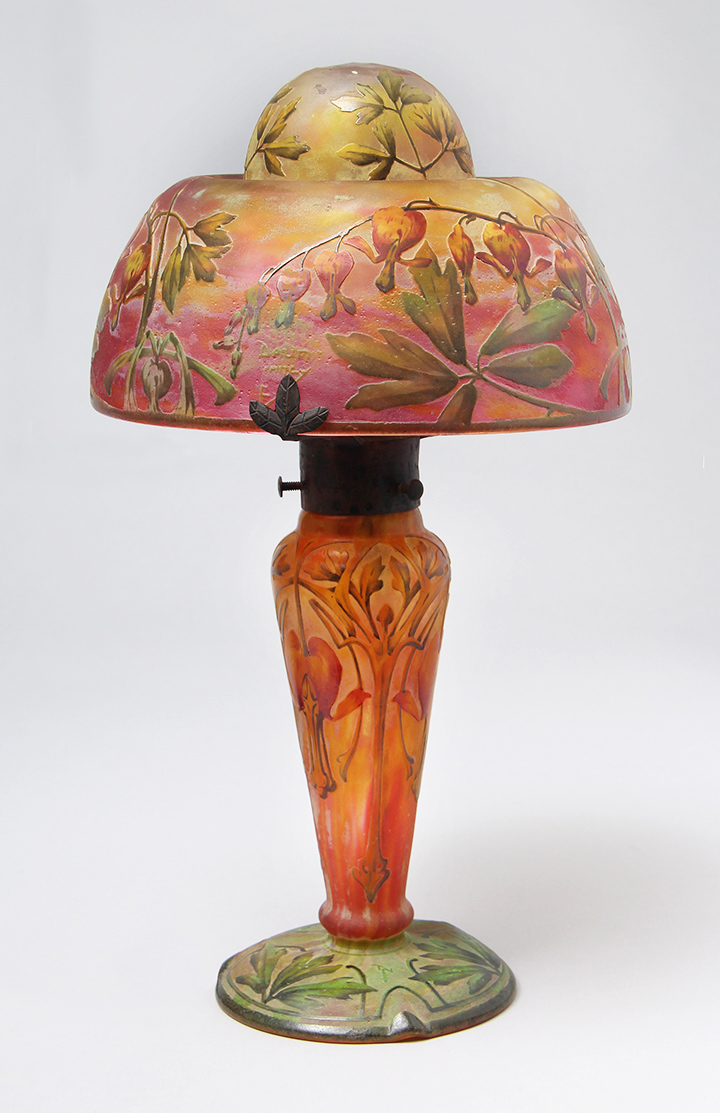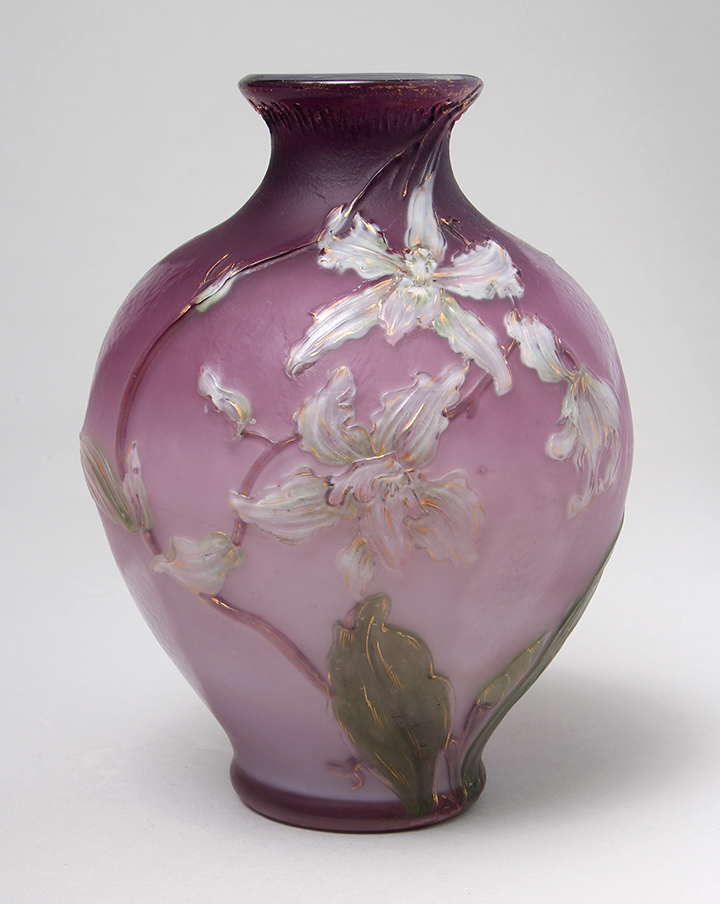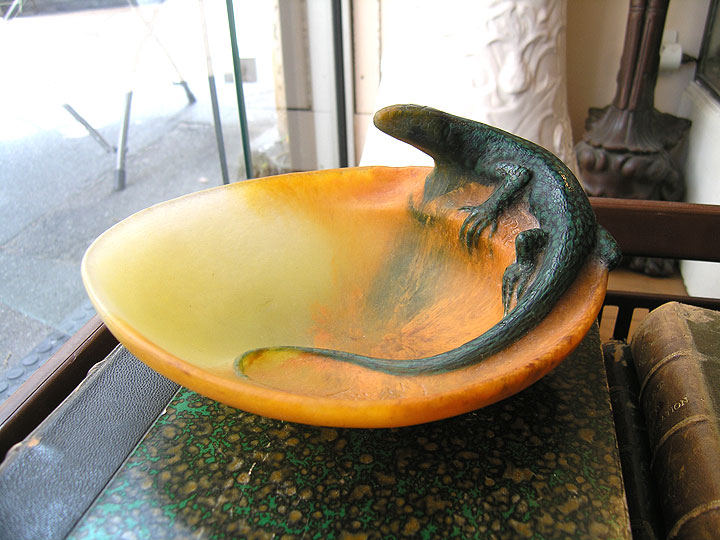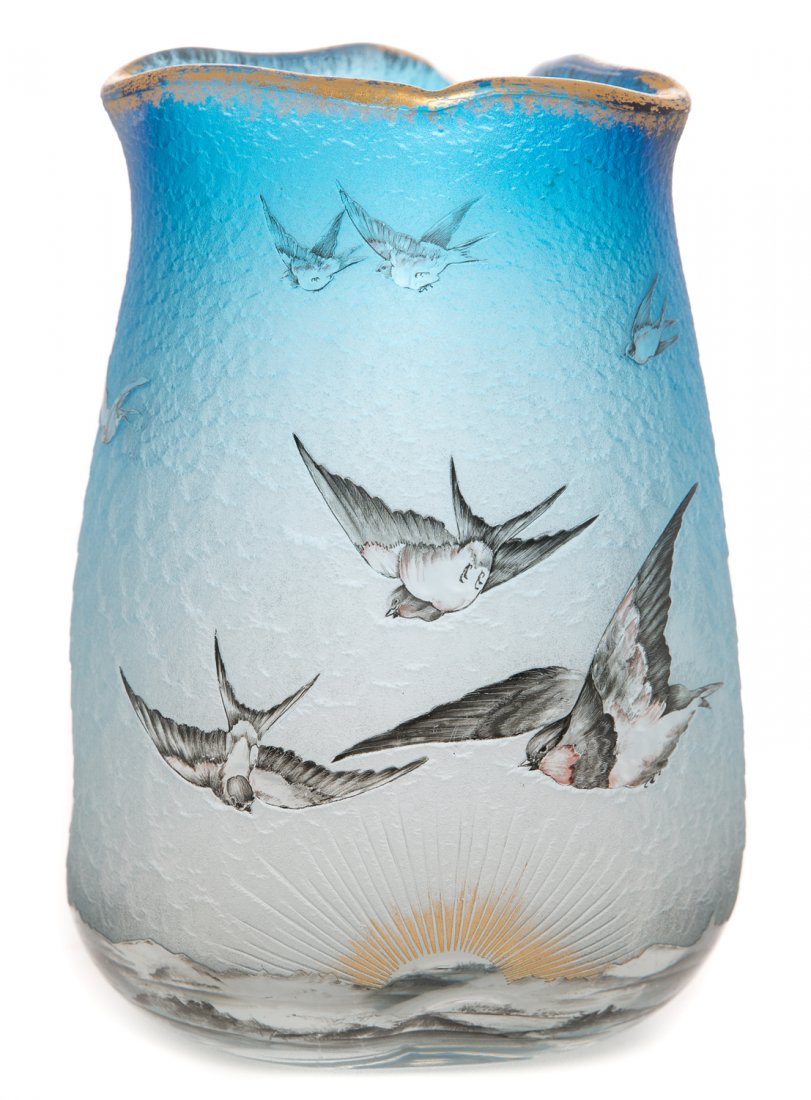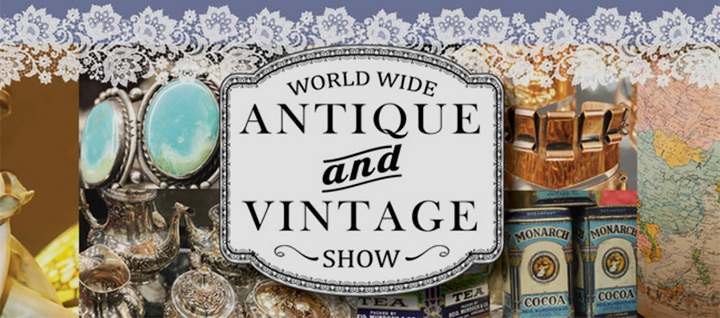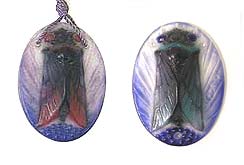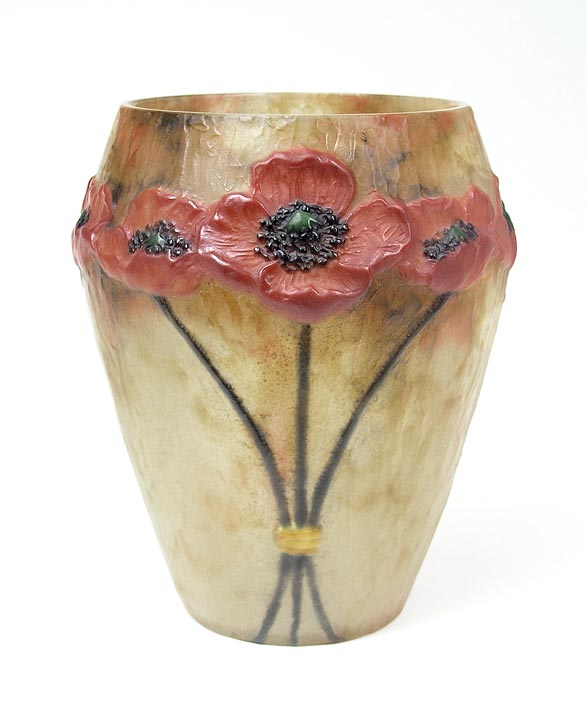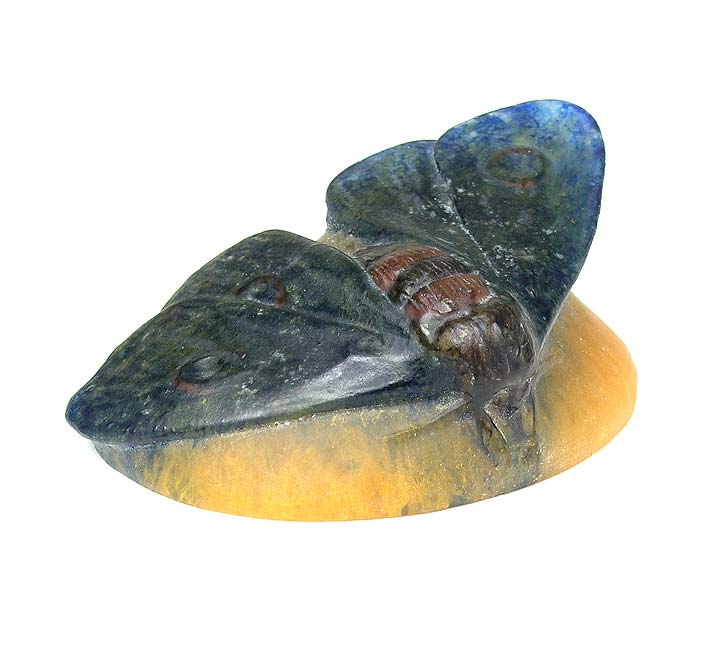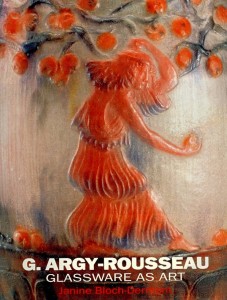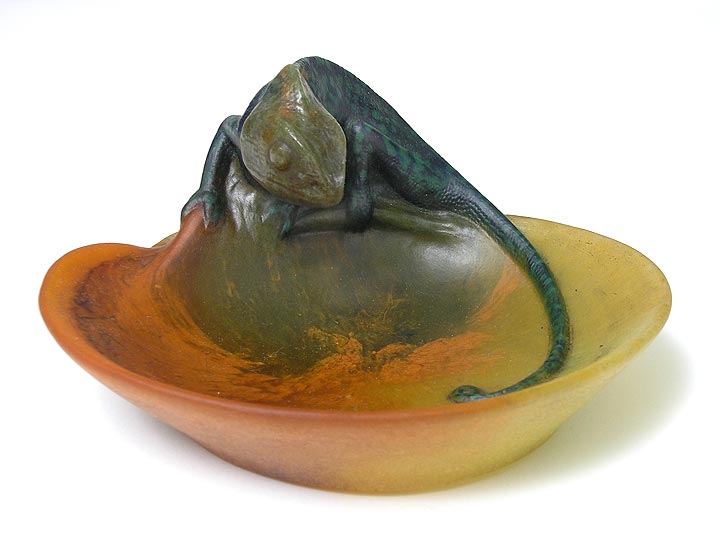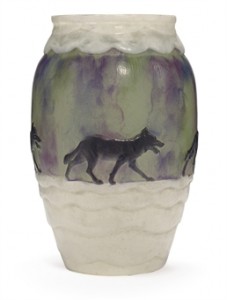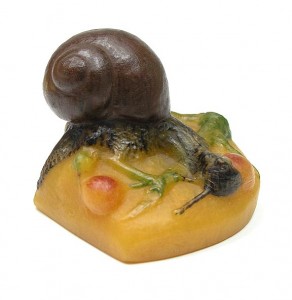My goal is to publish new posts twice a week — Mondays and Thursdays. However, if you don’t see a new post on Thursday, it’s because I was too busy, so please look for a new one the following Monday.
Christie’s New York held a sale of important French glass, entitled FRENCH ART GLASS: AN IMPORTANT NEW YORK PRIVATE COLLECTION, on March 23, 2016. Sales totaled $1,948,375 for the 176 lots offered. Only three lots failed to sell, for an average of $11,262 per sold lot. I expected good results because this was a really fine collection and the market in French glass is buoyant. The collection consisted of mostly pâte-de-verre items, but included some cameo glass by Gallé, Daum Nancy and Muller.
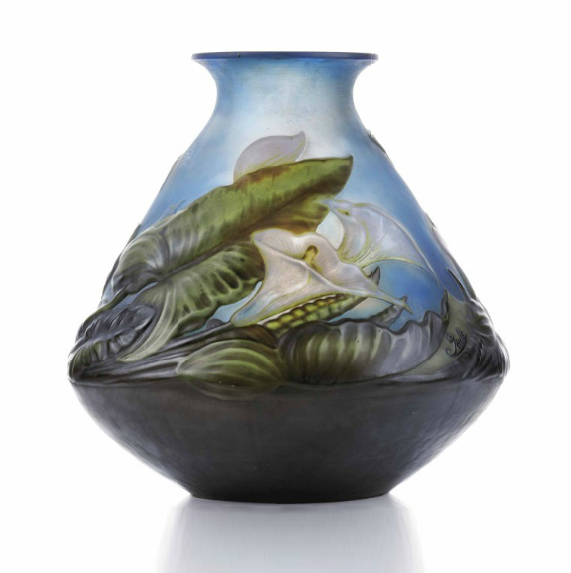
Gallé Calla Lily vase, Christie’s lot #29
The top lot of the sale was #29, a huge Gallé blownout
Calla Lily vase, in a rare color combination of white flowers and green leaves on a blue background. It easily exceeded its high estimate of $70,000, realizing $106,250, including buyer’s premium, even with open bubbles on the interior of the vase.
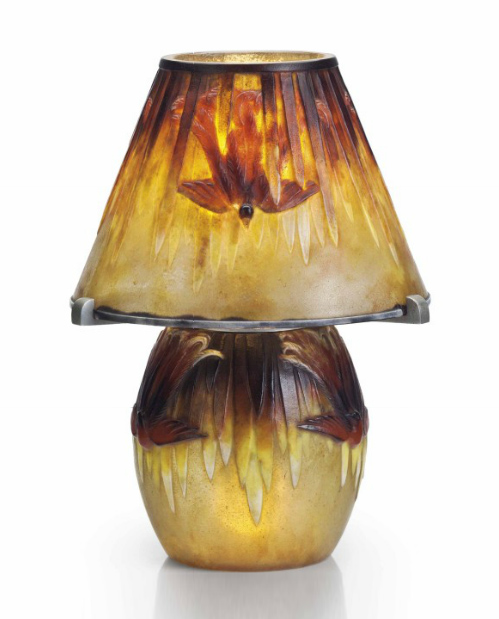
Argy-Rousseu Bird of Paradise table lamp, Christie’s lot #69
A beautiful and rare pâte-de-verre table lamp by Argy-Rousseau, lot #69, was second best. Entitled
OISEAUX DE PARADIS (Bird of Paradise), circa 1928, it sold for $81,250, against a pre-sale estimate of $35,000 – $55,000.
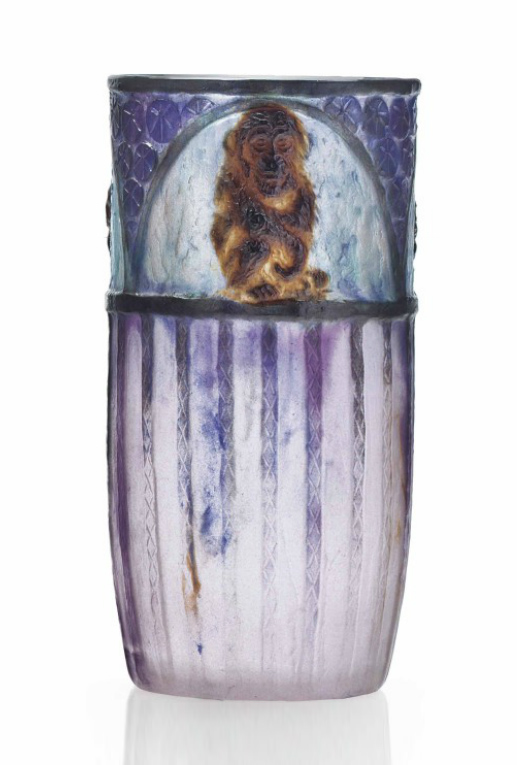
Argy-Rousseau Singes vase, Christie’s lot #111
I loved lot #111, a very rare Argy-Rousseau pâte-de-verre vase entitled
Singes, with monkeys, on a gorgeous blue and purple background. It sold above its high estimate of $20,000, realizing $27,500, including buyer’s premium, but I thought it would sell for even more.
For the complete results of the sale, click here.
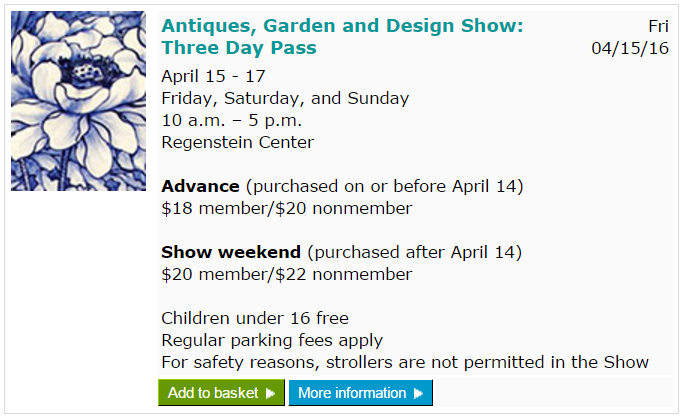
Click on this image to buy tickets
Can you believe our next show is next week! We’ll be in Glencoe, IL, for the Garden, Antique & Design Show, at the Chicago Botanic Garden, starting April 15th. It’s a beautiful show, with both antiques and gardening, that you’ll absolutely enjoy. We only have two remaining shows in the greater Chicago area, so come and say hi!
If you’re selling, please let me know. If you have what I’m looking for, I’m paying the highest prices. My decisions are quick and my payments just as quick. Just snap a photo and email it to me.
I always strive to offer the finest objects for sale on my website and at every show. I will continue to list more as often as possible. Please click here to take a look.There are many items for sale, sold items with prices and free lessons about glass and lamps. And remember to keep reading my blog.
